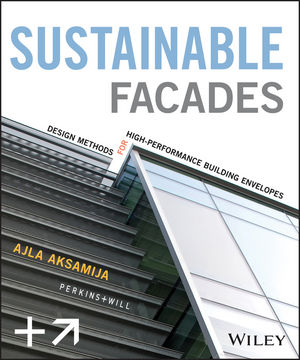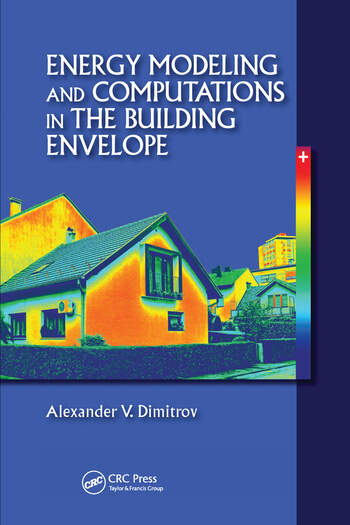WASHINGTON, D.C. — Today, more than 27 leading associations representing a wide range of interests in the building and construction industry announced the formation of the American High-Performance Buildings Coalition (AHPBC). These organizations have come together to promote and support the development of sustainable building standards, which are based on consensus and scientific performance data.
“As energy efficiency and building performance become increasingly important priorities for the public and private sectors, green building standards and rating systems should be based on the best available data, gathered from a range of stakeholder with relevant expertise. This coalition brings together industry leaders with an incredible range relevant expertise in manufacturing, material science and building performance, who will work to bring needed perspectives to this important work. The coalition will advocate for performance- and consensus-based standards for green building, which are the best way to achieve exceptional energy-efficiency,” said Steve Russell, vice president of plastics for the American Chemistry Council (ACC).
The coalition will provide critical experience and expertise to the development of green building standards, and will support performance-based building codes, standards and rating systems developed in conformance with the American National Standards Institute (ANSI), the established voice of the U.S. standards and conformity assessment system. ANSI-accredited systems recognize transparency, balance of interests represented and consensus decision-making.
The coalition announcement comes as the U.S. General Services Administration (GSA) is in the process of reviewing the use of green building standards by the federal government and the U.S. Green Building Council (USGBC) revises its Leadership in Energy and Environmental Design (LEED) green building rating system.
The AHPBC supports certification systems based on sound data, scientific methodology and developed using a consensus process. The coalition will advocate that position with GSA, other federal agencies and in other venues where green building certifications are under consideration.
Stephen Eule, vice president for climate & technology at the U.S. Chamber of Commerce’s Institute for 21st Century Energy said, “The business community is actively engaging to develop and support green building standards through transparent and consensus-based processes. We believe this is the best way to create high-performing buildings that are energy efficient and practical to implement. The U.S. Chamber is pleased to be part of this important coalition to advocate for sustainable building using science, performance and consensus-based standards.”
Chip Yost, National Association of Manufacturers assistant vice president of energy and resources policy said, “Manufacturers have led the way in innovating technologies and solutions to improve energy efficiency and keep energy affordable. With buildings using approximately 40 percent of the energy in the United States, green standards play an important role in the manufacturing of energy-efficient products. It is important that organizations setting the standards use a consensus-based and transparent process, grounded in good science.”
“Vinyl products have a proven role in making homes and buildings energy efficient and conserving resources. In order for the green building movement to evolve, it is critical for standards and rating systems to encourage the use of products with the strongest lifecycle profiles, since these products will contribute most to building performance,” said Richard Doyle, president & CEO of the Vinyl Institute.
“The manufacturers and wholesale-distributors that comprise the American Supply Association (ASA) are committed to delivering essential building materials that reduce water consumption, will efficiently heat and cool our homes and workspaces and will make energy and water conservation a reality. ASA looks forward to partnering with those in the building materials industry to continue bringing sustainable solutions to the marketplace,” said Dan Hilton, American Supply Association.
“The formation of this coalition is yet another positive step on the road to making green construction not an exception but rather standard operating procedure for the construction, design and building maintenance communities in this country. As building product manufacturers, we understand our responsibility to work with the design community to achieve truly energy efficient high performing, 21st century buildings,” said Jared O. Blum, president of PIMA.
“Today’s highest performing building materials combine long-term durability with energy efficient properties and numerous other environmental benefits. Green building certification systems and standards should promote the use of these important materials, rather than penalize their selection,” said Craig Silvertooth, president of the Center for Environmental Innovation in Roofing.
The members of the coalition include the American Architectural Manufacturers Association, the American Chemistry Council, the Adhesive and Sealant Council, the American Coatings Association, American Fuel & Petrochemical Manufacturers, the American Supply Association, the Center for Environmental Innovation in Roofing, the Chemical Fabrics and Film Association, the EPDM Roofing Association, the Expanded Polystyrene Industry Alliance, the Extruded Polystyrene Foam Association, the Flexible Vinyl Alliance, the Industrial Minerals Association, the National Association of Manufacturers, the National Hispanic Landscape Alliance, the National Lumber and Building Material Dealers Association, the Plastic Pipe & Fittings Association, the Polyisocyanurate Manufactures Association, the Resilient Floor Covering Institute, the Society of Plastic Industry, the Society of Chemical Manufacturers & Affiliates, the Southern Forest Products Association, the Treated Wood Council, the U.S. Chamber of Commerce, the Vinyl Institute, the Vinyl Siding Institute, and the Windows & Door Manufacturers Association.
For more information, visit www.betterbuildingstandards.com.








